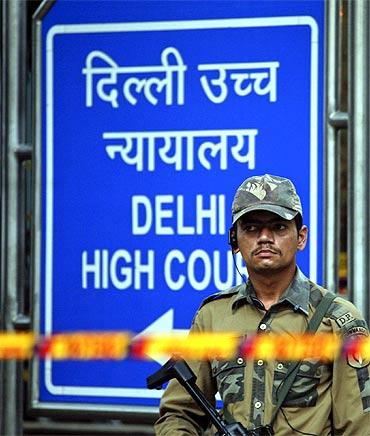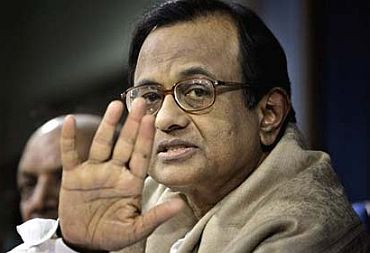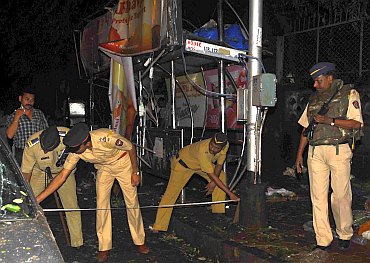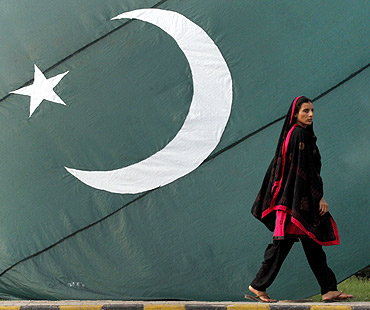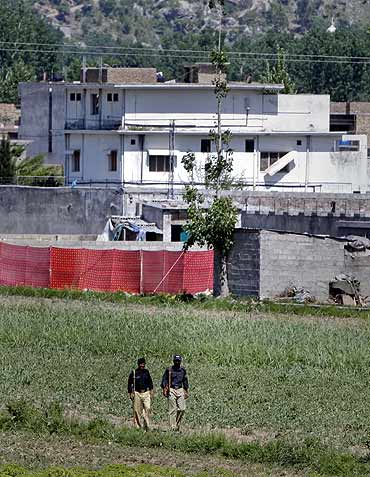 | « Back to article | Print this article |
'US and India are under threat'
The United States and India need to stop being suspicions of each other's intentions and deepen intelligence sharing if they are to effectively combat terrorism, a leading South Asia expert and erstwhile Central Intelligence Agency analyst has told the US Congress.
Lisa Curtis, a Senior Research Fellow at the conservative Heritage Foundation -- a Washington, DC-based think tank -- while testifying before the House Foreign Affairs Subcommittee on Terrorism at a hearing titled, US-India Counterterrorism Cooperation: Deepening the Partnership, said, "The US and India are under threat from terrorists that seek to disrupt both countries' democratic way of life, undermine their economic progress, and strike terror among their citizenries."
"This point was driven home last week as India experienced yet another devastating attack -- this time at the New Delhi high court -- and the US sought to track down credible threat information that terrorists were preparing to attack New York City and Washington, DC, around the 10-year anniversary of the 9/11 attacks," she said.
Curtis lamented, "Despite a general convergence of American and Indian views on the need to contain terrorism, the two countries have failed in the past to work as closely as they could to minimise threats."
Reportage: Aziz Haniffa in Washington, DC
'US can help India strengthen its homeland security'
"While the US and India engage closely on a host of issues -- including defence, nuclear non-proliferation, and economic cooperation -- the greatest potential benefit to each country's national security is likely to come from the expansion of counterterrorism cooperation," she said.
Curtis said, "The US can help India strengthen its homeland security and make itself less vulnerable to terrorism by sharing the best practices and lessons learned over the post-9/11 decade", while Washington "also stands to benefit from greater access to India's information and databases that track terrorists who are active in India, many of whom have close connections to Al Qaeda and other Pakistan-based terrorist groups."
She said, "While India has faced numerous insurgencies and separatist movements over the last 30 years," Islamic terrorism, constituted "one of the most urgent internal threats to India's security."
Curtis said that although India has not assigned responsibility for either of the recent attacks, Home Minister P Chidambaram's statement that the strikes were most likely conducted by India-based terrorists, represented "a significant departure from past Indian pronouncements following terrorist attacks in which officials automatically pointed a finger across the border to Pakistan."
'Terrorism in India is being conducted by Indians'
Curtis pointed out, "The David Headley trial in Chicago apparently revealed that Pakistani intelligence and the LeT have worked together in recent years on an endeavour called the Karachi Project, which seeks to motivate and equip Indians to attack their own country."
"A survey of terrorist attacks occurring in India over the last five years validates the theory that terrorism in India is increasingly being conducted by Indians working closely with Pakistan-based terrorist groups," she said.
Curtis noted, "In the six months before the November 2008 attacks that were carried out by the LeT, India suffered several terrorist attacks inside the country, most of which were claimed by the Indian Mujahideen. This led to concern in India about the growing threat posed by homegrown Islamist extremists."
Curtis also lamented the insufficient steps taken by India to improve its counterterrorism capabilities since the Mumbai attack in 2008 and said "it must do far more to cope with the persistent threat of terrorism. India will have to overhaul its intelligence systems and reform and bolster its local police operations. The amount of resources that India has invested in bolstering its counterterrorism capabilities has so far failed to adequately meet the challenge."
'India has only 140 policemen for 100,000 people'
Curtis also said, "One of India's biggest challenges is to increase the number, and improve the capabilities, of its police forces. Indian police lack training and equipment and are simply too low in number to serve the population adequately. India has only 140 policemen for every 100,000 people, while the world average is around 270.
In terms of US-India Counterterrorism Cooperation, Curtis reiterated, "Despite this wide-ranging anti-terrorism cooperation, a lingering trust deficit has pervaded the US Indian relationship and prevented deeper cooperation on specific regional threats."
"In the past, India has been frustrated by what it viewed as inconsistencies and backsliding in US public statements concerning the Pakistan-based terrorist threat to India. Indian officials also believe that the US has withheld information on Al Qaeda terrorist operatives suspected of having ties to Kashmiri militants."
'US officials have failed to hold Pakistan accountable'
But Curtis said, "The US handling of the Headley case revived, to some extent, Indian mistrust of the US and its handling of terrorism cases implicating Pakistan," where "striking revelations about the LeT's international reach and its close connections to Pakistani intelligence emerged from the trials of both Headley and his accomplice Tahawwur Rana."
She said, "The hesitant US approach to sharing information on Pakistan-based terrorist groups with India does not serve US interests and cripples the US's ability to fully get a handle on terrorist threats emanating from South Asia."
"Downplaying connections between Al Qaeda and terrorist groups that mainly focus on attacking India is counterproductive. By choosing to view the activities of Al Qaeda and other Pakistan-based terrorists groups, such as the LeT, through a separate lens, US officials have failed to hold Pakistan accountable for dealing effectively with terrorists located on its territory," she added.
'Pakistan's tolerance has facilitated Al Qaeda's ability'
She asserted, "The US and India alike should recognise the value of their shared experiences in fighting terrorism and pursue a robust dialogue on counterterrorism strategies, as well as deepen their intelligence-sharing and other forms of cooperation, thereby improving the security of both nations."
Specifically, Curtis said, there should be enhanced intelligence-sharing and cooperation "without prejudice to Pakistani political sensitivities."
She said, "The US must avoid sending the signal that it considers Pakistan-based terrorist groups that attack India less of a terrorism threat than Al Qaeda," and pointed out that "the groups that focus on attacking India cooperate with Al Qaeda and share its pan-Islamist, anti-West agenda, and thus must be defeated in order to contain the overall terrorist threat in the region."
Curtis reiterated that Washington "should never stifle counterterrorism cooperation with India in deference to Pakistani political sensitivities. This would only strengthen the hands of the terrorists. Instead, the US must make clear to Pakistan that its tolerance or support of terrorist groups will lead to international isolation and a weakened position in the region."
